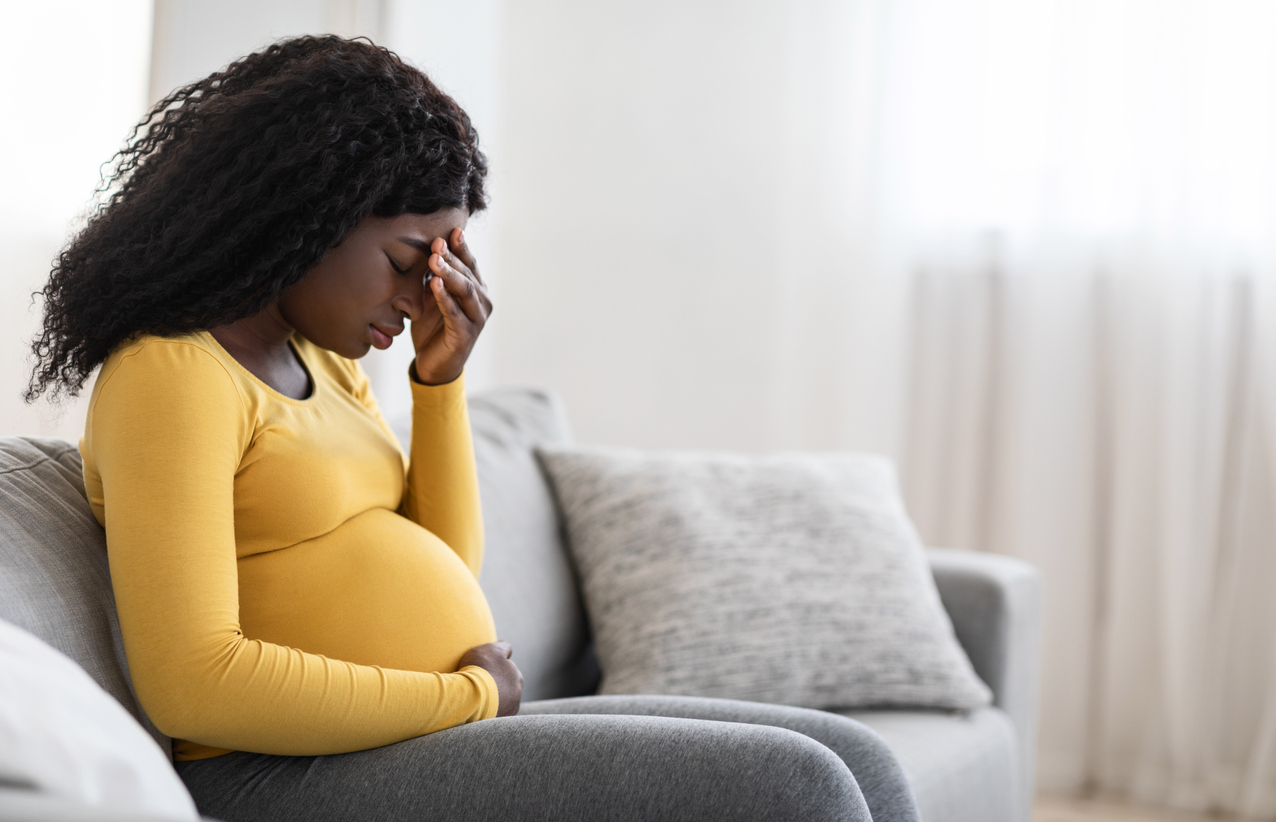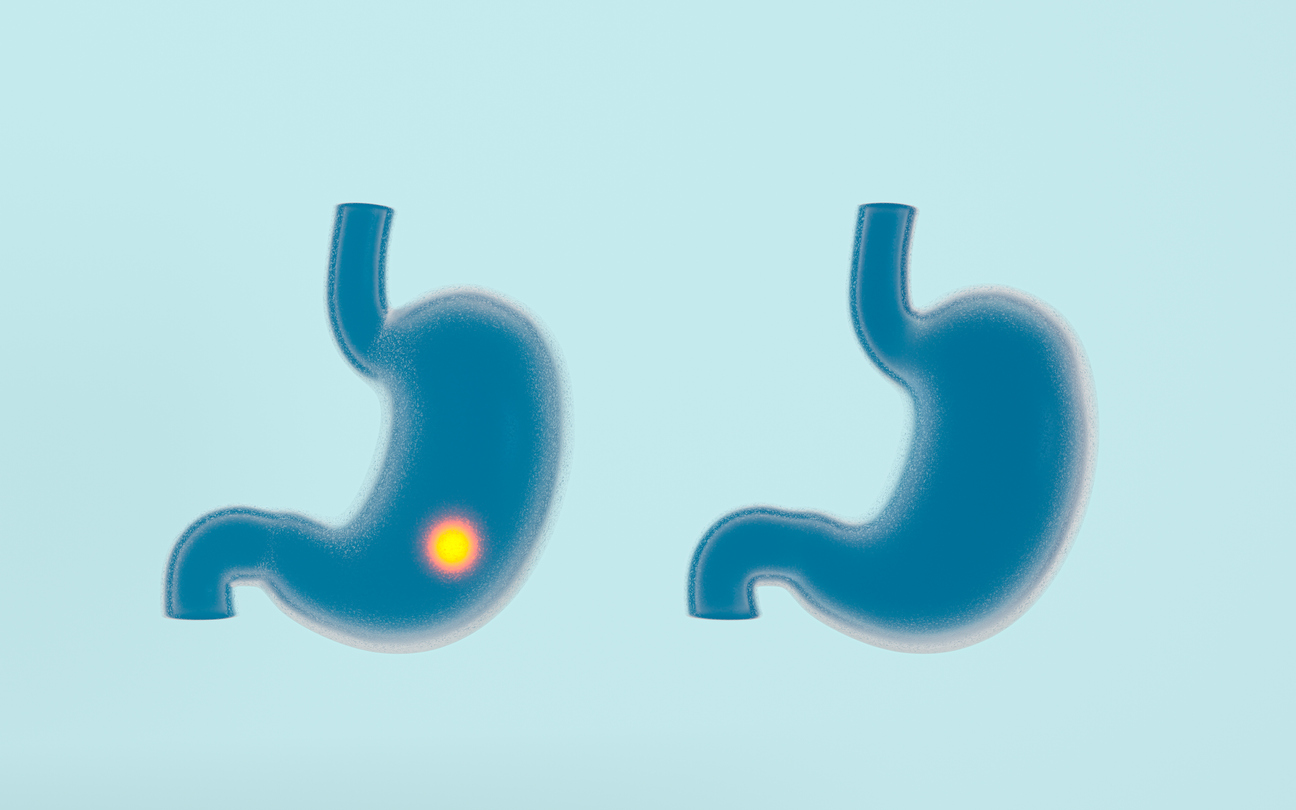Nausea is when you feel sick, even if you’re not actually being sick (vomiting). It’s common and has many possible causes, including eating or drinking something that doesn’t agree with you, a hangover, a tummy (stomach) bug, motion sickness, pregnancy or an underlying health condition.
If you've been feeling nauseous, being sick can often make you feel better, and the 2 conditions can be linked.
Most causes of nausea aren’t serious, and symptoms usually go away on their own. But while you’re feeling sick, it can be very uncomfortable, especially if it lasts for a while. It can make you feel tired, miserable and unable to get on with your daily life.
Thankfully, there are lots of things you can do to reduce that sick feeling. Depending on the cause, treatment for nausea can include self-care you can try at home, medication from a pharmacy and medicine prescribed by a doctor. So read on to learn more, so you can help yourself feel better.
What are the symptoms of nausea?
Nausea can feel different depending on the cause, and not everyone gets the same sensations or symptoms. In general, nausea can include:
- an uncomfortable feeling in your stomach that won’t go away – this can be tightness, heaviness, pain or a feeling of indigestion
- an urge to be sick (vomit) – you might also make more spit (saliva) than usual
- feeling dizzy or sweaty
- being unable to eat
It’s not always the case that you’ll vomit after feeling nauseous, or vice versa. Lots of people actually find that nausea feels worse and lasts longer than being sick.
Why am I feeling sick and what helps?
Nausea can happen for lots of different reasons, and for some causes, self-care is the best first step. If this doesn’t help, remember that you can see a pharmacist or doctor.
Food and drink
- food poisoning – nausea is 1 of the main symptoms of food poisoning. You’ll usually start to feel unwell within a few days of eating the food that causes it, though the timeframe can range from as little as a few hours to as much as a few weeks. Read more about what causes nausea after eating
- alcohol – a hangover from drinking too much alcohol is a common cause of nausea
Digestive problems
- acid reflux is when stomach acid rises up towards your throat. It’s closely linked to heartburn, which is a burning sensation in your chest when stomach acid makes this journey. Nausea can be a symptom of acid reflux for some people, with symptoms tending to be worse after meals or when lying down
- irritable bowel syndrome (IBS) is a common condition that affects your digestive system and can be triggered by food and drink. The main symptoms include stomach pain or cramps that get worse after having a meal, bloating, diarrhoea and constipation – but nausea can also be a symptom

Hormonal changes
- pregnancy – nausea is very common in pregnancy, and up to 80% of people get it. It’s most common in early pregnancy, when it’s known as morning sickness, but it can affect you at any time, and sometimes all day. It can be very unpleasant and affect how you feel, but usually gets better by weeks 16 to 20 of pregnancy
- periods – feeling sick can be a sign of premenstrual syndrome (PMS), and it can also happen during your period. Research suggests that people with symptoms of anxiety or more painful periods are more likely to get nausea before and during their period
- menopause – nausea can be a sign or symptom of the menopause, but it’s not clear how many people this affects. As well as being linked to hormonal changes, it could be a side effect of menopause medication. Read more about how menopause can cause nausea
Common infections
- COVID-19 – research has shown that, for some people, both nausea and vomiting can be symptoms of COVID-19
- flu – nausea can be a sign of the flu alongside other symptoms including extreme tiredness (fatigue), a sore throat and a high temperature that comes on suddenly
- gastroenteritis – this is a common condition that affects your digestive system, and nausea and vomiting are 2 of the main symptoms. It’s caused by a bacterial or viral stomach bug and can be very unpleasant, but usually clears up in a few days

Motion sickness
Motion sickness, or travel sickness, can happen while you’re travelling by car, boat or aeroplane. It happens because the ‘vomiting centre’ in your brain is connected to balance organs in your inner ear.
It can be very unsettling, causing nausea, dizziness and vomiting, and can last the whole length of a journey.
Self-care tips to stop feeling sick
Things you can try to help stop yourself feeling nauseous include:
- staying hydrated – try regularly sipping a cold drink through a straw
- getting lots of rest – being very tired can make nausea worse
- eating dry, plain foods such as crackers or toast, as well as cold food and foods containing ginger. Read more about the best foods for nausea
- eating smaller meals and eating less often
- getting some fresh air – either by going outside or opening a window
- distracting yourself – try listening to music, reading a book or having a chat with someone
- closing your eyes and breathing slowly – try to really focus on your breathing
- sitting in the front seat of a car or the middle of a boat – this will help reduce motion sickness
- looking straight in front of you at a fixed point – such as the horizon, to help motion sickness
- relaxation techniques – such as visualisation, meditation and deep breathing. Read more about relaxation techniques for nausea
- acupressure – sometimes known as pressure point therapy. Morning sickness in particular may be relieved by firmly pressing down on the 2 tendons on the inside of your wrist with your middle and index fingers
When to get help from a pharmacy or doctor
Many health issues can also cause nausea, and it may be that your pharmacist or doctor recommends self-care as a way to deal with the sick feeling. But it's important to get checked out by a doctor if you have these conditions.
Headaches and migraines
Headaches can be accompanied by nausea, whatever their severity. These are ‘aches’ that happen in any part of your head, behind your eyes or ears, or in your upper neck.
A migraine is a type of headache, which is caused by abnormal nerve activity in your brain. These nerves change the flow of blood around your brain and send messages to other parts of your body. This can cause a variety of symptoms, including very painful headaches and sensitivity to sound and light, as well as nausea and vomiting.
Recreational drug use
Drugs such as opioid painkillers (such as morphine) and cannabis (marijuana) can cause nausea and vomiting. Long-term cannabis use sometimes leads to a condition called cannabinoid-induced hyperemesis, which causes severe nausea and vomiting.
Stomach problems
- gastro-oesophageal reflux disease (GORD) is a condition where acid from your stomach leaks up into your food pipe (oesophagus), causing heartburn, acid reflux and nausea. It can also cause bad breath and difficulties swallowing
- stomach ulcers, or gastric ulcers, are sores that can form on your stomach lining. Nausea is a common symptom, along with a burning or gnawing pain in your stomach
- gastroparesis is when your stomach can’t empty normally. It’s a long-term condition that’s linked to a problem with your nerves and muscles, with symptoms including nausea, feeling full very quickly and weight loss. The most common cause of gastroparesis is diabetes that isn’t well-managed or treated. So if you have diabetes and nausea, talk to your doctor as soon as possible. Nausea and vomiting when you have diabetes can also be a sign of diabetic ketoacidosis, a dangerous complication that happens if your body starts to run out of insulin. Read more about the symptoms of diabetic ketoacidosis and when to get urgent medical help

Anxiety
Nausea can be linked to anxiety, and particularly the panic attacks that anxiety can sometimes cause.
Lasting anywhere from 5 to 30 minutes, panic attacks can be scary, as they come on very suddenly and the feelings they create can be intense. However, they’re not usually dangerous, and get better on their own. Read about how to deal with a panic attack.
Medication
Nausea is a potential side effect of lots of medicines, including some:
- painkillers (analgesics)
- heart (cardiovascular) drugs
- chemotherapy drugs for cancer
If nausea from medication is affecting you badly, speak to your doctor to see if they can give you a different medicine. Don’t stop taking your medication without speaking to your doctor.
Recent surgery
Nausea is the second most common side effect of surgery, after pain. Whether you get it can depend on various things, including the sort of operation you have and the type of anaesthetic and painkillers you’re given. If needed, you may be offered anti-sickness medication for the day after your surgery.
Head conditions
Head injury
If you’re feeling nauseous after hurting your head, it might be a sign of concussion. Symptoms can last up to 2 weeks, but can usually be treated at home with an ice pack and rest.
You should make sure someone stays with you for at least 24 hours after a head injury, and get urgent medical attention if you vomit at any point afterwards. It’s also important to get treatment if you have a serious head injury.
Vertigo
Vertigo is the feeling that everything around you is spinning – sometimes it can even feel like you’re spinning. It can make you feel nauseous and sometimes vomit, and affect your balance.
An attack can last anywhere from a few seconds, to a few days or months (if you have severe vertigo). It’s important to speak to a doctor if feelings of vertigo don’t go away or keep coming back.

Inner ear problems
Nausea can be a sign of an inner ear problem, including:
Attacks can come on suddenly and they have quite similar symptoms, including vertigo, nausea and vomiting.
Encephalitis
Encephalitis is a serious condition when your brain becomes inflamed. It’s uncommon, but can be life-threatening, so it needs urgent hospital treatment. Nausea can be 1 of the first symptoms, alongside:
- vomiting
- headache
- high temperature (fever)
- aching joints and muscles
Treatments for nausea
Talk to a healthcare professional if self-care measures haven’t helped with your nausea, or if you have a condition that needs managing.
Explain that nausea is 1 of your symptoms and they will help you work out what the right treatment is for you. There are treatments that can be bought from a pharmacy or prescribed by a doctor.
Treatments from a pharmacy
Pharmacy nausea treatments can help with:
- migraines – painkillers such as paracetamol or ibuprofen may be offered, or combination medicines that contain both painkillers and anti-sickness medication
- vertigo and motion sickness – antihistamines such as promethazine or cinnarizine might be recommended. Patches or tablets containing hyoscine hydrobromide can also help prevent travel sickness
- general nausea – acupressure wristbands might be recommended, which press on the pressure points on the inside of your wrist to help relieve that sick feeling
Treatments from a doctor
Nausea treatments you might be prescribed by a doctor include:
- anti-sickness medicines – certain anti-sickness medicines are only available on prescription, and are usually prescribed as a short course. Some are safe to use in pregnancy, so they’re often prescribed for pregnancy nausea. But they can be used for nausea caused by lots of other conditions, including migraines and gastroparesis
- medicine to reduce stomach acid – if your nausea is caused by a stomach ulcer, your doctor may prescribe medicine to help reduce your stomach acid and prevent further damage. These include proton pump inhibitors (PPIs) and H2-receptor antagonists
When to see a doctor about nausea
If you’re worried about your symptoms, try our Smart Symptom Checker to help you work out what to do next.
Nausea can often be managed by self-care measures, and it usually isn’t caused by anything serious. However, there are some instances when you should get medical help.
You should go to hospital if you have nausea and:
- a high temperature
- severe stomach pain, headache or neck pain
- a rash, neck stiffness or sensitivity to light
- your chest feels tight or heavy, or the pain spreads to your back, neck, arms or jaw
- blood in your vomit or poo
- signs of dehydration – you can’t keep fluids down or you haven’t peed in 8 hours
- you feel breathless
- you feel dizzy, like you might faint, or you’re too weak to manage daily activities
You should see a doctor if you have nausea and:
- your symptoms aren’t improving with self-care
- it isn’t going away or keeps coming back
- diarrhoea
- you’re losing weight
- you have an underlying condition, such as kidney disease, inflammatory bowel disease (IBD) or a weakened immune system
Complications of nausea
Nausea is common and usually goes away on its own, without you needing to do anything.
However, if you keep feeling nauseous and being sick, you can get dehydrated, so it’s important to seek treatment. The same applies if you have diarrhoea.
If you have vomiting and/or diarrhoea with your nausea, you might want to use oral rehydration sachets to help treat or avoid dehydration. These are available from pharmacies. Read more about dehydration treatment.
Your health questions answered
Does paracetamol help with nausea?
Answered by: Healthily’s medical team
“Paracetamol doesn’t specifically help with nausea – it’s used to treat aches, pains and a high temperature. It can be bought from a pharmacy combined with anti-sickness medicines, and it’s an ingredient in lots of cold and flu medicines. It isn’t dangerous to take it if you have nausea, if you take it at the correct dosage.”
Are there other rare conditions that cause nausea?
Answered by: Healthily’s medical team
“Nausea can also be a symptom in some more rare conditions. Addison’s disease is a condition involving the adrenal glands, which is most common in women aged 30 to 50. Symptoms can be difficult to pick up because they’re similar to lots of other conditions, including flu, but nausea can be a later symptom. Hypercalcaemia, which happens when your calcium levels are too high, can also cause nausea. It’s usually due to primary hyperparathyroidism – when the parathyroid glands in your neck make too much hormone – but it can also be caused by some cancers. Make sure you’re familiar with when to see a doctor about nausea.”






